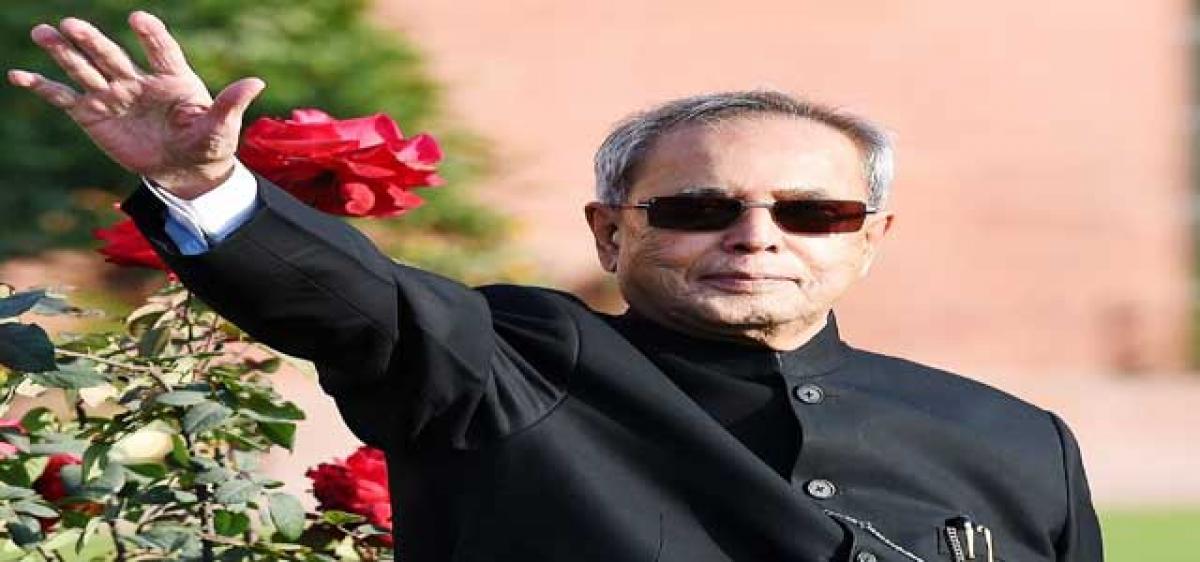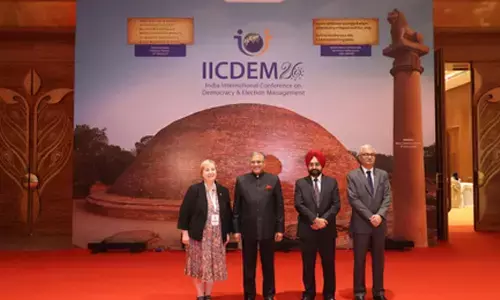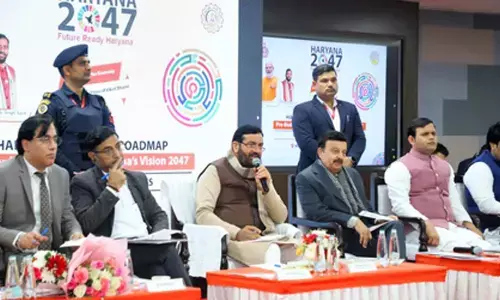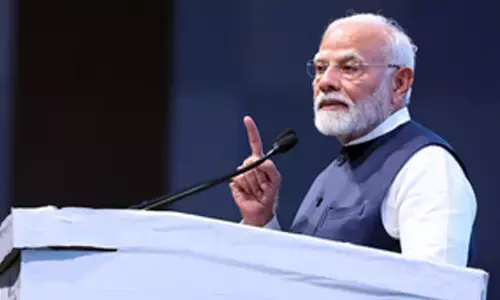The President of India

Article 52 of the Constitution of India says that there shall be a President of India. Article 53 says that all the executive powers of the Union shall be exercised by him either directly or through officers subordinate to him.
Article 52 of the Constitution of India says that there shall be a President of India. Article 53 says that all the executive powers of the Union shall be exercised by him either directly or through officers subordinate to him.
The President of India is the Head of the State and Supreme Commander of the armed forces. He is elected by the member of an electoral College that comprise all elected members Of both Houses of Parliament and the Legislative Assemblies of the State and Union Territories of India. The president holds Office for a term of five years.
Various Articles of the Constitution define the role and the powers of the President. All visiting Heads of State and Government are received by the President. The President appoints India’s Ambassadors and High Commissioners in foreign countries.
The President is also ‘Visitor’ of Central Universities, Indian Institutes of Technology, National Institute of Technology, Indian Institutes of Science Education and Research as Well as the Indian Institute of Science.
Election of the President
Article 54 of the Indian Constitution discusses the election of the President. It says that the President shall be elected by the members of an electoral college, which consists of the elected members of both the Houses of Parliament, and the Legislative Assemblies of the States and the Union Territories.
The election of the President is held in accordance with a system of proportional representation by means of a single transferable vote. He can be re-elected to the office of the President. The oath of the President is administered by the Chief Justice of India, and in his absence, by the most senior judge of the Supreme Court.
Eligibility
- Article 58 of the Indian Constitution says that the presidential candidate must: Be a citizen of India.
- Have completed the age of thirty-five years.
- Be qualified for elections as a member of the LokSabha.
- Not hold any office of profit under the Union or any State government, or any local or other authority.
Term of office
Article 56 of the Indian Constitution says that the President shall hold office for a term of five years from the date he takes up his post. He may resign from his office by writing his resignation to the Vice-President of India. But, he will continue to hold his office, in spite of tendering his resignation, until his successor takes up his office. And, before his office gets vacated, an election should be held for the same.
Article 61 provides for the manner in which he can be impeached on the violation of the Constitution. The Vice-President acts as his substitute in case his office falls vacant on the grounds of his death, resignation or impeachment or otherwise. Such a vacancy should be filled by an election necessarily taking place within six months of his office falling vacant.
Impeachment of President
Impeachment is the process to remove the President of India from his office before his term expires. The Impeachment can be carried out if the Constitution of India is violated by the President and the proceedings can be initiated in either of the two houses of the Parliament. Two-thirds majority is required to pass the resolution in the House.
Thereafter, a notice signed by a quarter of the members of the House and containing the charges is sent to the President. After 14 days the charges are taken into consideration by the other House and in the meantime the President can defend himself. If the charges are approved by the second House also then the President is said to have been impeached. He has to leave his office.
Powers of President
The President of India is vested with the Executive, Legislative, Emergency, Diplomatic, Judicial and Military powers.
Executive powers
All the executive powers of the Union shall be vested in him. These powers should be exercised by him in accordance with the Constitution of India. He appoints the Prime Minister and the Council of Ministers. He also appoints the judges of the Supreme Court and the High Courts in the states, besides appointing the Attorney General and Comptroller and auditor General of India. Among other critical powers, he enjoys the pardoning power, whereby he can pardon the death sentence awarded to a convict.
Legislative powers
He can dissolve the LokSabha and end a session of the Parliament. He can also address the Parliament in its first session every year. He can nominate 12 members to the RajyaSabha. These members must have extra ordinary accomplishments in the fields of science, art, literature and social service.
He can also nominate 2 members to the LokSabha from the Anglo-Indian Community. When a bill is passed by the Parliament, the President can give or withhold his assent to it. He can also return it to the Parliament, unless it's a Money Bill or a Constitutional Amendment Bill.
Emergency powers
He can declare national, state and financial emergency. National emergency can be declared on the grounds of war, external aggression or armed rebellion in the country. This can be done on the written request of the Cabinet Ministers after the proclamation has been approved by the Parliament. State emergency can be imposed in a state if it fails to run constitutionally. Financial emergency can be proclaimed if there is a likelihood of the financial instability in the country.
Financial powers
Only when the President recommends can a money bill be introduced in the Parliament. He lays the Union budget before the Parliament and makes advances out of the Contingency Fund.
Diplomatic, Military and Judicial powers
He appoints ambassadors and high commissioners to other countries. All international treaties are signed on his behalf. Under Military powers, he can declare war and conclude peace. He appoints Chief of Army, Navy and Air Force. He can dismiss judges if two-third majority of the members present of the two Houses of the Parliament pass the resolution to that effect.
Salary and residence of President of India
The salary and allowances of the President are fixed by the Parliament of India. The current salary of the President is Rs 150000 per month. His official residence is RashtrapatiBhavan in New Delhi.
Current President of India:
Shri Pranab Mukherjee assumed office as the 13th President of India on July 25, 2012, Eighty-one years old, Shri Mukherjee is a man of unparalleled experience in governance with the rare distinction of having served at different times as Foreign, Defence, Commerce and Finance Minister




